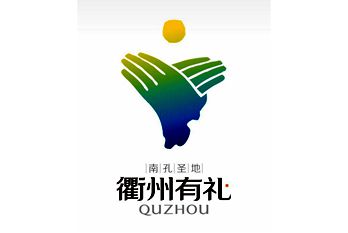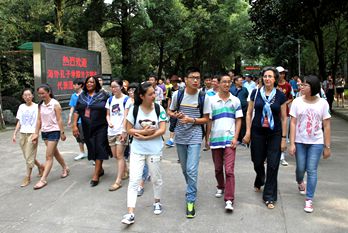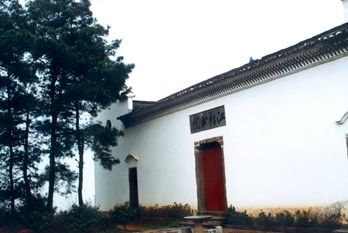Quzhou's village visions make progress
China first proposed its rural revitalization strategy in 2017. The aim was to develop rural areas by introducing thriving businesses, creating a healthy environment, developing social etiquette and civility, providing effective governance, and creating a prosperous rural population. The progress made by poverty elimination programs were to be consolidated and become an integral part of rural revitalization.
Quzhou was reportedly the first city in Zhejiang to launch a village vision pilot project, and it has adhered to a people-centered rural development model since August 2019.
Making use of science and technology
Digitalization and intelligence are a part of the "village visions" concept. In the Lotus Village International Future Community in Qujiang district, a robot named Xiaolian that is capable of facial recognition greets and communicates with visitors, and her humorous answers often arouse laughter. Intelligent technology has been used in many areas, such as livestreaming and entrepreneurial platforms, according to staff in the community.
Sound services for villagers and tourists
In order to carry out "future village" construction, Yudong and Pushan villages have made strong efforts in rural tourism services, providing tourists with "one-stop" services for food, accommodation, travel, and shopping.
"Local homestays are common here. Some of them have been upgraded from ancient houses, and there are capsule spaces for young people, which are used as small shops during the day and accommodation at night," said Li Wanshun, a visitor to the village.
"Welcoming in and going global"
It is the goal of many "future villages" in Quzhou to develop local tourism and cultural industries with global elements. Yudong village has adhered to a "welcoming in and going global" model – developing a farmer painting market, attracting fine arts, making literary and art experts "the future of the villagers", and cooperating with well-known domestic art colleges to develop "country in the future".

 City brand logo - fist-and-palm salute
City brand logo - fist-and-palm salute Confucianism on campus
Confucianism on campus The culture of the academy
The culture of the academy